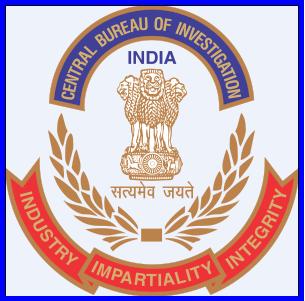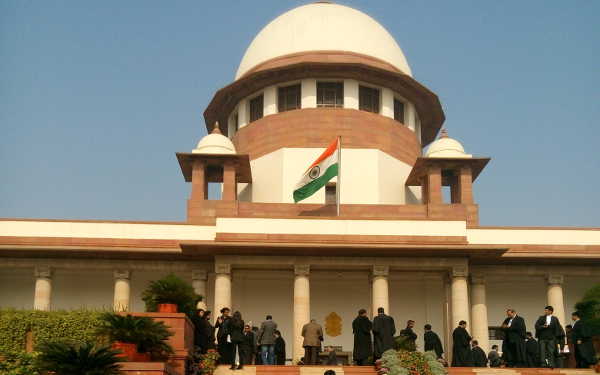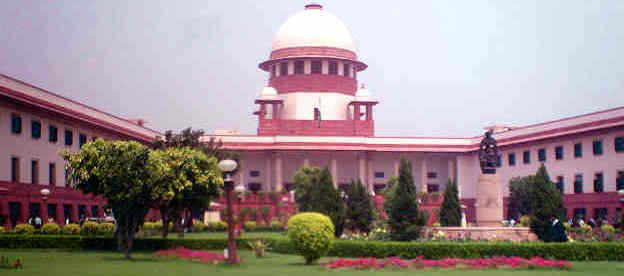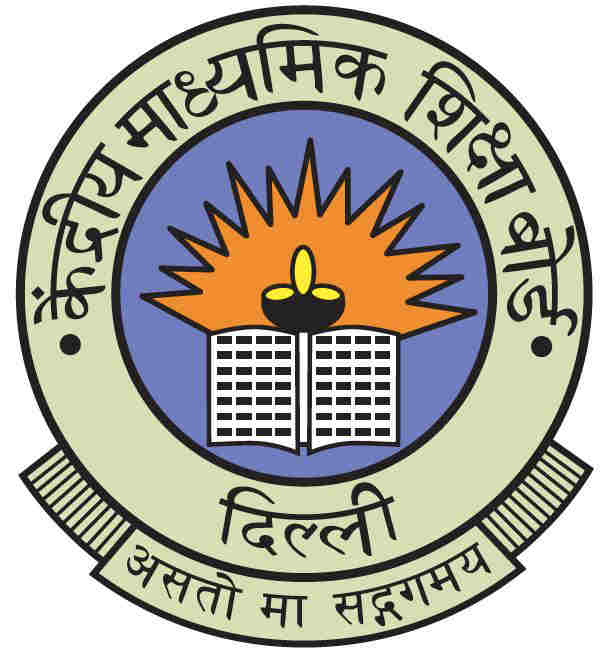1. Preface:
1.1. In ordinary parlance, the word ‘cognition’ means ‘faculty of knowing’ and ‘cognizable’ means capable of being taken cognizance of.[1] Similarly, the word ‘cognizance’ means ‘judicial notice or knowledge’ or ‘the judicial recognition or hearing of a cause’ or ‘jurisdiction or right to try and determine causes’. Thus, the word ‘cognizance’ is a word of the largest import, embracing all power, authority and jurisdiction. The word ‘cognizance’ is used in the sense of the right to take notice of and determine a cause. Taking cognizance does not involve any formal action, or indeed action of any kind, but occurs as soon as a Magistrate, as such, applies his mind to the suspected commission of an offence.[2]
1.2. In the matter of, Darshan Singh v. State of Maharashtra[3], the Hon’ble Supreme Court of India held that, cognizance takes place at a point when a Magistrate takes judicial notice of an offence and this is the position whether the Magistrate takes cognizance of an offence on a complaint, or on a police report, or upon information of a person other than a police officer.[4] Similarly, in the matter of, Ajit Kumar v. State of West Bengal[5], the Hon’ble Supreme Court of India held that, the word ‘cognizance’ has no esoteric or mystic significance in criminal law or procedure for it merely means ‘to become aware of’ and when used with reference to a court or judge it means ‘to take notice of judicially’. Also, in the matter of, Narayandas Bhagwandas Madhavdas v. State of West Bengal[6], contemplating on the concept of ‘taking cognizance’, the Hon’ble Supreme Court of India held that, as to when cognizance is taken of an offence depends upon the facts and circumstances of each case and it is impossible to attempt to define what is meant by taking cognizance. The issuing of a search warrant for the purpose of an investigation or of a warrant of arrest for that purpose cannot by itself be regarded as an act by which cognizance is taken of an offence.
1.3. When a Magistrate decides to not to take cognizance of an offence or drop proceedings against some persons mentioned in the first information report then he must give notice and first hear the informant.[7]
1.4. The matters of which the courts take judicial cognizance require no formal proof though they are not formally admitted and these matters include the matters of law and of fact. It is important to note that, at the time of taking cognizance of the offence, the court has to consider only the averments made in the complaint or in the charge-sheet (filed under Section 173 of the Code of Criminal Procedure, 1973), as the case may be, hence, it is not open for the court to sift or appreciate the evidence at that stage with reference to the material and come to the conclusion that no prima facie case is made out for proceeding further in the matter.
1.5. According to Section 40 of the Indian Evidence Act, 1872, the word ‘cognizance’ means, the legal right to deal with a matter, jurisdiction or the hearing and trying of a cause.
1.6. In the matter of, Kishun Singh v. State of Bihar[8], the Hon’ble Supreme Court of India held that, although the expression ‘take cognizance’ is not defined in the Code of Criminal Procedure, 1973, it is settled law that when the Magistrate takes notice of the accusations and applies his mind to the allegations made in the complaint, or police report, or information, and on being satisfied that the allegations, if proved, would constitute an offence decides to initiate judicial proceedings against the alleged offender, he is said to have taken cognizance of the offence. Cognizance is in regard to the offence and not the offender. Similarly, in the case of, State of West Bengal & Anr v. Mohd. Khalid & Anr[9], it was held that, the word ‘cognizance’ indicates the point when a Magistrate or a Judge first takes judicial notice of an offence. It is entirely a different thing from initiation of proceedings rather it is the condition precedent to the initiation of proceedings by the Magistrate or the Judge. Cognizance is taken of the cases and not of persons. It has, thus, reference to the hearing and determination of the case in connection with an offence.
1.7. Taking cognizance of an offence is not the same thing as issuance of process. Cognizance is taken at the initial stage when the Magistrate applies his judicial mind to the facts mentioned in a complaint, or to a police report, or upon information received from any other person that an offence has been committed. The issuance of process is at a subsequent stage when after considering the material placed before it the court decides to proceed against the offenders against whom a prima facie case is made out.[10]
1.8. If a Magistrate takes cognizance of an offence and issues process, without there being any allegations against the accused or any material implicating the accused, then the order of the Magistrate is no doubt faulty, however, the remedy with the accused lies in invoking Section 482 of the Code of Criminal Procedure, 1973 praying the Hon’ble High Court to quash the summoning order issued against the accused, this is so because a Magistrate under the Code of Criminal Procedure, 1973 has no power to recall its order of summoning.[11]
2. Scheme of the Code of Criminal Procedure, 1973:
2.1. The Code of Criminal Procedure, 1973 is an enactment which is designed to regulate the procedures governing the investigation of crimes in order to get the perpetrators of the crime punished. A crime is an act or omission prohibited by law attracting certain legal consequences like: imprisonment, fine or both.
2.2. The Code of Criminal Procedure, 1973 imposes a duty on the investigating agencies to accumulate necessary evidence to establish the occurrence of a crime and to trace out the real perpetrators of the crime in order to get them reprimanded. Punishment is to be inflicted only by a competent court and not by the investigating agency.
2.3. The court of law is authorised to inflict punishment upon the accused, only if it is satisfied that the evidence gathered by the investigating agency is sufficient to establish: (a) that crime had been committed, and, (b) the persons charged with the offence and brought before the court by the investigating agency for trial are the real perpetrators of the crime.
2.4. Under the Code of Criminal Procedure, 1973, an investigating agency is bound to investigate into an offence by complying with the procedure enumerated in the Code of Criminal Procedure, 1973 once either information regarding the commission of a cognizable offence is received by it, or, an order is passed by the Magistrate to investigate into the allegation of the commission of a non-cognizable offence.
2.5. The investigating agency is required to submit a report under Section 173 of the Code of Criminal Procedure, 1973, upon the completion of investigation. Section 173 (2) (i) (d) of the Code of Criminal Procedure, 1973 inter alia stipulates that the report should contain a statement as regards, whether any offence appears to have been committed and if so, by whom?
2.6. The conclusions arrived at by the investigating agency are scrutinised by the court, and, it is only after the court is satisfied that the evidence collected by the investigating agency is sufficient in law to punish the accused that such an accused is punished.
2.7. Taking cognizance of an offence by the court is one of the initial steps in the process. Once cognizance is taken by the court of an offence, the investigating agency is then required to collect evidence and place the same before the court under Section 173 of the Code of Criminal Procedure, 1973.
3. Scheme of prosecution under Section 138 of the Negotiable Instruments Act, 1881:
3.1. The objective of the proceedings of Section 138 of the Negotiable Instruments Act, 1881 is that the cheques should not be used by persons as a tool of dishonesty and once a cheque is issued by a person, it must be honoured by him, but, if it is not honoured, then the person must be given an opportunity to pay the cheque amount by issuance of a legal notice of demand and if the person still does not pay, then he must be made to face the criminal trial and the legal consequences flowing therefrom.[12]
3.2. An offence under Section 138 of the Negotiable Instruments Act, 1881 is to be tried by Judicial Magistrate of First Class (JMFC) or Metropolitan Magistrate (MM) in accordance with the summary trial provisions contained in the Code of Criminal Procedure, 1973, that is, from Section 262 to Section 265 (both inclusive).
3.3. Section 143 of the Negotiable Instruments Act, 1881 provides that in case of conviction of an accused under Section 138 of the Negotiable Instruments Act, 1881 following the procedure of ‘summary trial’, it shall be lawful for the Magistrate to pass a sentence of imprisonment of up to 1 (one) year and a fine exceeding Rs. 5000/-.
3.4. Section 143 of the Negotiable Instruments Act, 1881 further provides that, if at the commencement or during the course of the ‘summary trial’, the Magistrate finds that owing to the nature of the case, a sentence of imprisonment exceeding 1 (one) year may have to be passed or else the Magistrate comes to the conclusion that the case should not be tried summarily, then, it is incumbent upon the Magistrate to pass an order (after hearing the parties to the complaint) giving reasons as to why the case should not be tried summarily but as a ‘summons trial’. Once the Magistrate takes the decision of trying the case as ‘summons trial’ instead of ‘summary trial’ then he shall be at liberty to recall the witnesses who may have although already been examined.
3.5. According to Section 145 of the Negotiable Instruments Act, 1881, the evidence of the complainant in a proceeding under Section 138 of the Negotiable Instruments Act, 1881 may be given by him by way of an affidavit and such an affidavit is to be read in evidence in any inquiry, trial or other proceedings in the court. Thus, a complainant in a proceeding under Section 138 of the Negotiable Instruments Act, 1881 need not examine himself twice, that is, first, after the filing of the complainant, and, second, after summoning of the accused. Hence, the affidavit and the complaint along with the relevant documents filed by the complainant are good enough evidence for both the stages (pre-summoning and post-summoning) of the trial albeit an offence committed under Section 138 of the Negotiable Instruments Act, 1881.
3.6. The complainant is not required to be recalled and re-examined after summoning of the accused, however, according to Section 145 (2) of the Negotiable Instruments Act, 1881, the court may, if it thinks fit, and shall, on the application of the prosecution or the accused, summon and examine any person giving evidence on affidavit as to the facts contained therein.
3.7. Summary trial procedure to be followed as regards the offences committed under Section 138 of the Negotiable Instruments Act, 1881[13]:
i. On the day the complaint under Section 138 of the Negotiable Instruments Act, 1881 is presented by the complainant to the concerned jurisdictional Magistrate (JMFC/MM) and if the complaint is accompanied by an affidavit by way of evidence of the complainant, the Magistrate (JMFC/MM) shall scrutinize the complaint, evidence affidavit and other documents filed by the complainant, and, if the commission of the offence under Section 138 of the Negotiable Instruments Act, 1881 is made out, then the Magistrate shall take cognizance of the offence under Section 138 of the Negotiable Instruments Act, 1881 and shall direct the issuance of the summons to the accused.
ii. If the accused appears on the summons issued to him, the Magistrate shall ask the accused to furnish bail bond to ensure his appearance during the trial and shall further ask him to take notice under Section 251 of the Code of Criminal Procedure, 1973 and enter his plea of defence (Section 263 (g) of the Code of Criminal Procedure, 1973). Thereafter, the Magistrate is to fix the case for defence evidence, unless application is preferred by the accused under Section 145 (2) of the Negotiable Instruments Act, 1881 for recalling a witness (complainant or any other prosecution witness) for cross examination on the plea of defence.
iii. If an application under Section 145 (2) of the Negotiable Instruments Act, 1881 is preferred by the accused then the Magistrate shall decide the same, otherwise, the Magistrate shall proceed to take defence evidence on record and allow the complainant to cross examine the defence witnesses.
iv. Once the stage of evidence is over, the matter is fixed for final arguments (to be led by both sides).
v. Once the final arguments are led by both sides, the Magistrate shall decide the complaint on merits, resulting in the passing of the requisite order/judgment.
3.8. Ingredients essential to attract prosecution under Section 138 of the Negotiable Instruments Act, 1881:
i. A cheque must have been issued by the accused in favour of the complainant for discharge of a legally enforceable debt or liability.
ii. The cheque must have been presented to the bank by the complainant within a period of 3 (three) months from the date on which it is drawn or within the period of its validity, whichever is earlier.
iii. The cheque has been returned by the bank as dishonoured for any of the reasons namely, insufficient funds, or payment stopped, or account closed by the drawer etc.
iv. The complainant should make a demand for the payment of the cheque amount by giving a notice of demand in writing to the accused (drawer of cheque) within 30 (thirty) days of receipt of information by the accused from the bank regarding the return of the cheque as unpaid;
v. If the accused fails to pay the cheque amount within 15 (fifteen) days of the receipt of the legal notice of demand, then, the complainant can prefer a complaint under Section 138 of the Negotiable Instruments Act, 1881 within a period of one month starting from the lapse of the 15 (fifteen) days period post the receipt of the legal notice of demand by the accused.
3.9. Punishment for the offence committed under Section 138 of the Negotiable Instruments Act, 1881: Imprisonment for a term which may extend to 2 (two) years, or with fine which may extend to twice the amount of the cheque, or with both.
3.10. Disclosure of the name of the person drawing the cheque is one of the factual allegations which a complaint is required to contain. In absence of any authority of law providing for investigation of an offence committed under Section 138 of the Negotiable Instruments Act, 1881, there would in fact be no person against whom the court can proceed, and undoubtedly, there cannot be any prosecution without there being an accused. Section 142 of the Negotiable Instruments Act, 1881 does not authorise the court taking cognizance of the offence committed under Section 138 of the Negotiable Instruments Act, 1881 to direct the police to investigate into the complaint.
4. Dictum in the matter of: Aneeta Hada v. Godfather Travels & Tours (P) Ltd., (2012) 5 SCC 661:
4.1. In the matter of Aneeta Hada (Supra), the question that came up for adjudication before the Hon’ble Supreme Court of India was: ‘Whether an authorised signatory of a company would be liable for prosecution under Section 138 of the Negotiable Instruments Act, 1881 without the company being arraigned as an accused?’
4.2. It was held that, in terms of Section 141 of the Negotiable Instruments Act, 1881, arraigning of a company as an accused is imperative. The observations of the Hon’ble Supreme Court in Para 59 are noteworthy and are extracted hereunder:
“59. In view of our aforesaid analysis, we arrive at the irresistible conclusion that for maintaining the prosecution under Section 141 of the Act, arraigning of a company as an accused is imperative. The other categories of offenders can only be brought in the drag-net on the touchstone of vicarious liability as the same has been stipulated in the provision itself…”
5. Dictum in the matter of: N. Harihara Krishnan v. J. Thomas, Criminal Appeal No. 1534 of 2017, Date of Decision: 30.08.2017 (Supreme Court of India):
5.1. Facts: Complainant (J. Thomas) was the power of attorney holder of M/s. Norton Granites & Spinners (P) Ltd. Accused (N. Harihara Krishnan) was the Managing Partner of M/s. Srivari Exports (a partnership firm) and Director of M/s. Dakshin Granites (P) Ltd. Complainant had sold three parcels of land by three separate registered sale deeds to M/s. Srivari Exports. Accused drew a cheque in favour of the complainant in discharge of the liability. The cheque was drawn by the accused on the account of M/s. Dakshin Granites (P) Ltd. There was no dispute as regards the fact that the cheque was drawn on account of M/s. Dakshin Granites (P) Ltd., as under the provisions of the Indian Contract Act, 1872, consideration can be furnished even by a third party to the contract. The cheque issued by the accused returned dishonoured. Complaint was filed by the complainant against the accused under Section 138 of the Negotiable Instruments Act, 1881 without impleading M/s. Dakshin Granites (P) Ltd. Later an application under Section 319 of the Code of Criminal Procedure, 1973 was preferred by the complainant to implead M/s. Dakshin Granites (P) Ltd. as an accused.
5.2. Question that arose for adjudication: Can the complainant be allowed to implead M/s. Dakshin Granites (P) Ltd. by preferring an application under Section 319 of the Code of Criminal Procedure, 1973?
5.3. Timeline of Events:
i. Date mentioned on the face of the cheque drawn by the accused on the account of M/s. Dakshin Granites (P) Ltd.: 10.08.2012
ii. Cheque was presented for collection by the complainant through its bank on: 28.08.2012
iii. Date of dishonour of cheque: 30.08.2012
iv. Legal notice of demand was issued by the complainant against the accused on: 10.09.2012
v. Legal notice of demand issued by the complainant was served on the accused on: 14.09.2012
vi. Complaint was filed by the complainant against the accused without impleading M/s. Dakshin Granites (P) Ltd.: 08.10.2012
vii. Application under Section 319 of the Code of Criminal Procedure, 1973 was filed by the complainant to implead M/s. Dakshin Granites (P) Ltd. on: 19.08.2015
5.4. The Hon’ble Supreme Court of India held as follows:
i. The cheque dated 10.08.2012 was drawn by a private company, that is, M/s. Dakshin Granites (P) Ltd. (although a third party to the sale transactions, nonetheless, such a payment is permissible under the provisions of the Indian Contract Act, 1872) and was allegedly signed by the accused in his capacity as the Director of M/s. Dakshin Granites (P) Ltd.
ii. Prosecution of the accused could not be termed as valid in terms of Section 141 of the Negotiable Instruments Act, 1881, without prosecuting the company on whose account the cheque was issued.
iii. The timelines stipulated under clauses (a) to (c) of the proviso to Section 138 of the Negotiable Instruments Act, 1881 are mandatory.
iv. Application to implead M/s. Dakshin Granites (P) Ltd. was preferred on 19.08.2015, that is, after almost 3 years of preferring the complaint against the Director of the company (M/s. Dakshin Granites (P) Ltd).
v. Section 142 of the Negotiable Instruments Act, 1881 stipulates that no court shall take cognizance of any offence punishable under Section 138 of the Negotiable Instruments Act, 1881 unless a complaint is made within a period of one month of the date on which the cause of action arises under clause (c) of the proviso to Section 138 of the Negotiable Instruments Act, 1881.
vi. Although the proviso to Section 142 of the Negotiable Instruments Act, 1881 states that a complaint under Section 138 of the Negotiable Instruments Act, 1881 can be entertained even at a later date than that which is stipulated in clause (b) of Section 142 of the Negotiable Instruments Act, 1881 provided ‘sufficient cause’ is shown. But, to file a complaint against the Director of the company, without impleading the company in the first instance and then later on after almost three years of filing of the complaint moving an application under Section 319 of the Code of Criminal Procedure, 1973 stating that the omission to implead the company in the first instance was not deliberate/wilful but was due to inadvertence, would not satisfy the test of ‘sufficient cause’, and therefore, in all likelihood such an application filed under Section 319 of the Code of Criminal Procedure, 1973 to implead the company would be considered prima facie mischievous and would fail as the prosecution of the company as per the provisions of the Negotiable Instruments Act, 1881 would be nothing but time-barred.
6, Excursus:
6.1. Offence committed under Section 138 of the Negotiable Instruments Act, 1881 is ‘person specific’ and the timeline provided in clauses (a) to (c) of the proviso to Section 138 of the Negotiable Instruments Act, 1881 is mandatory.
6.2. The observation made by the Hon’ble Supreme Court of India in its report, Raghubans Dubey v. State of Bihar[14], to the effect that, “…once cognizance has been taken by the Magistrate, he takes cognizance of an offence and not the offender; once he takes cognizance of an offence it is his duty to find out who the offenders really are and once he comes to the conclusion that apart from the persons sent up by the police some other persons are involved, it is his duty to proceed against those persons…”, is not applicable to an offence committed under Section 138 of the Negotiable Instruments Act, 1881.
6.3. In the context of prosecution under Section 138 of the Negotiable Instruments Act, 1881, the concept of taking cognizance of the offence but not of the offender is not appropriate. Unless the complaint filed by the payee (or the holder in due course of the cheque) contains all the necessary factual allegations constituting each of the ingredients of the offence under Section 138 of the Negotiable Instruments Act, 1881, the Magistrate cannot take cognizance of the offence, namely, dishonour of cheque.
[1] Section 2(c) of the Code of Criminal Procedure, 1973
[2] P. Ramanatha Aiyar’s Concise Law Dictionary, Fifth Edition, Lexis Nexis, p. 214
[3] AIR 1971 SC 2372
[4] Section 190 (1) of the Code of Criminal Procedure, 1973
[5] AIR 1963 SC 765, 770
[6] AIR 1959 SC 1118
[7] Bhagwant Singh v. Commissioner of Police, AIR 1985 SC 1285
[8] (1993) 2 SCC 16
[9] (1995) 1 SCC 684
[10] State of Karnataka v. Pastor P. Raju, (2006) 6 SCC 728
[11] Adalat Prasad v. Rooplal Jindal & Ors, (2004) 7 SCC 338
[12] Rajesh Agarwal v. State & Anr, Crl. M.C. No. 1996/2010 & Crl. M.A. No. 7672/2010, Date of Decision: 28.07.2010 (S.N. Dhingra, J.)
[13] Ibid
[14] AIR 1967 SC 1167















